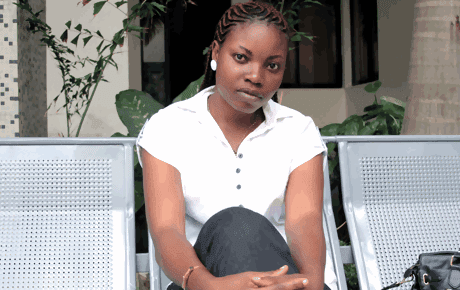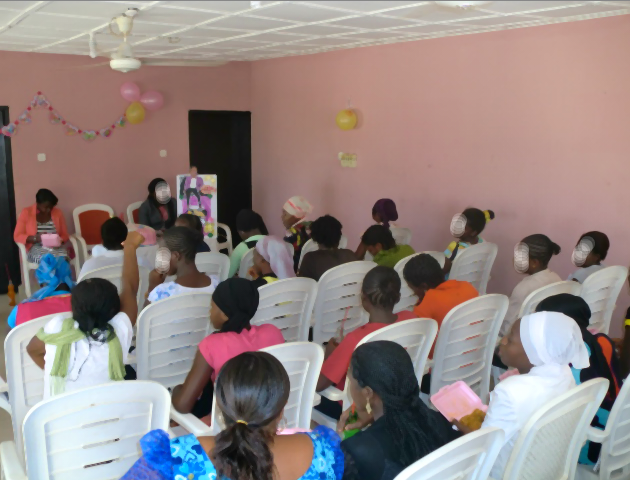Africa: Where Black is no longer beauty
By Aipu
Adoba
Black, they
say, is beauty. But this profound truism may not have enjoyed wide acceptance
after all. At least, not to some Nigerians who have chosen to alter their
natural dark look in preference to lighter complexion. It reminds one of Jame
Aggrey, the Ghanaian poet and politician when he declared, “l’m proud of my
color.” In utter disdain for the white supremacists, and to underscore the
black man’s inalienable right to self-determination Aggrey had intoned, “Anyone who is not proud
of his color is not fit to live. “
But the
desire for light skinned color by black Africans is rooted in
neo-colonialism. A product of mental
servitude orchestrated by western capitalists through highly persuasive media
advertisement by the cosmetic giants deeply rooted in media messages that tend
to portray the white as superior skin.
Only recently, Fair and White, a
cosmetic giant that manufactures skin lightening product held a beauty pageants
for Skin-bleachers named ‘Nigeria's Miss Fair & White Pageant in Nigeria,
world most populous black nation. The urge among Africans to become ‘white
like’ is so pervasive that even Aggrey’s Ghanaians today spend as much as
$3,000 to procure ‘Half-Caste’ babies through a scientific method called
vasectomy, a trend that is fast becoming a status symbol. The process requires
implanting white male sperm to fertilise the black female egg.
The Ghanaian
experience is captured in the recent report of infoboxx.com reports. According
to the online publication, “In Ghana, they are regarded as hotcakes. Their
complexion put them on a fairly higher pedestal, as they are the ones every guy
or lady craves to date - the half-caste! But ever thought that a time will come
for half-caste babies to be bred in Ghana? Well, thanks to modern science, one
can have a half-caste or mixed-race baby without necessarily having to marry or
have sexual intercourse with a person of different race. Following in the steps of artificial
insemination, a novel venture to create a new society –‘Half-caste World’- on
the African continent is bourgeoning in Ghana’s capital, Accra”.
The half
caste phenomenal has rudely diminished the African pride of black as beauty.
But not just in Ghana, even in Nigeria where the quest for white complexion
skin by some people has led to outright bleaching. So, worrisome it was that
the ministry of health at one point decided to campaign against the bestial
habit by highlighting the danger it poses to victims especially, when they are
required to undergo medical surgery.
The habit of
skin bleaching cut across sex. It is found in both men and women alike. While
it is still prevalent among women of low social status, it could also be found
among the highly placed in the society. But the question is why are people
bleaching? What are the motivations and the implications?
Communication
theorists have tried to explain media-audience reactions within the context of
media message-channel-audience response. It explains how media contents
influence audience behaviour, which provides a clue as to the question of why
people bleach. In Nigeria and indeed many African countries, advertisers have
had to employ the sex-appeal on televisions as one way to gain the heart of
fashion inclined men and women.
The trend is
driven by the media as light skinned women are portrayed to be more beautiful
and adorable, Lupita Nyong'o a popular Kenyan actress who leaped to limelight
in an award winning movie titled “12 years a slave” had her picture photo
shopped in Vanity Fair magazine such that she looked several tones lighter than
her original self. Such a celebrity is a ready choice for advertiser and
models, and is often used to endorse beauty ads.
According to
a research carried out last year by the WHO, 77 percent of women in Nigeria use
skin-lightening products, the world’s highest percentage. The figure compares
with 59 percent in Togo, and 27 percent in Senegal.
The report
said in many parts of Africa, lighter-skinned women are considered more
beautiful and believed to be more successful and likely to find marriage. It
also said it is not only women who are obsessed with bleaching their skins.
Some men too are involved in the practice.
According to
Dr.Robert Inalegwu ,a dermatologist who spoke with The Nigerian
Times also said skin bleaching comes with hazardous health consequences. The
dangers associated with the use of toxic compounds for skin bleaching include,
blood cancers such as leukemia and cancers of the liver and kidneys, as well as
severe skin conditions. She said hard-core bleachers use illegal ointments
containing toxins like mercury, a metal that blocks production of melanin,
which gives the skin its colour, but can also be toxic.
Despite all
the side effects of bleaching cream, skin bleaching is still on the rise. The
Nigerian Times decided to find out from a cross section of Nigerians why they
bleach.
 |
Before and
after picture of Dencia, who rose to fame after releasing whitenicious, one of the most
controversial bleaching creams ever to be sold in Africa
|
According to
Ndidi a health worker in Abuja, “80 per cent of Nigerian men are attracted to
light skinned women, as a result Nigerian women are inclined to bleach,” She
said. But, Phoebe and Ifedolapo would not agree with Ndidi. As far as they are
concerned, it’s as a result of inferiority complex.
Mrs hannatu
Wakawa a fashion designer believes most
Nigerian women bleach because of the wrong perception that it makes them more
beautiful and attractive.” I think they do so based on their erroneous
perception that if they bleach their skin to become fair in complexion, they
will look very beautiful. Such women must have beheld other women of fair
complexion that are beautiful and want to be like them,” She said.
The National
Agency for Food and Drug Administration and Control (NAFDAC) approved only 2
per cent of chemicals such as mercury and hydroquinone in cosmetics products.
But then, a careful examination of some of the beauty products in the market
contains far more than the approved percentage.
Uchenna Emeka, a cosmetic dealer in Wuse
market, Abuja, said most customers would pay anything to have beauty products
with a high percentage of any of the above bleaching chemical.” Many of my
customers are not satisfied with cosmetic product that has just 2 percent of
bleaching agent, they insisted on getting the ones with higher percentage
because they work faster,” Emeka said.
Despite the
serious and well known side effects of bleaching creams, most users in their
blind quest for beauty remained undeterred. Africa and indeed Nigeria may not
be sharing in the joy of ‘being black’. Yes, many are eager to shout how proud
they are to be black, yet some would do anything to look ‘white’ while claiming
black. Bleached skin does not end with health side effects alone but transmit
the lack of core values of blackness. The tale of colonialism, slavery and
apartheid which ought to bind black
Africans to their cultural heritage is rather been eroded. It is heart breaking
that the Blackman is revolting against its own ancestral heritage by himself.
Many have described this as the sign of the time, when the black is no longer
beauty.











